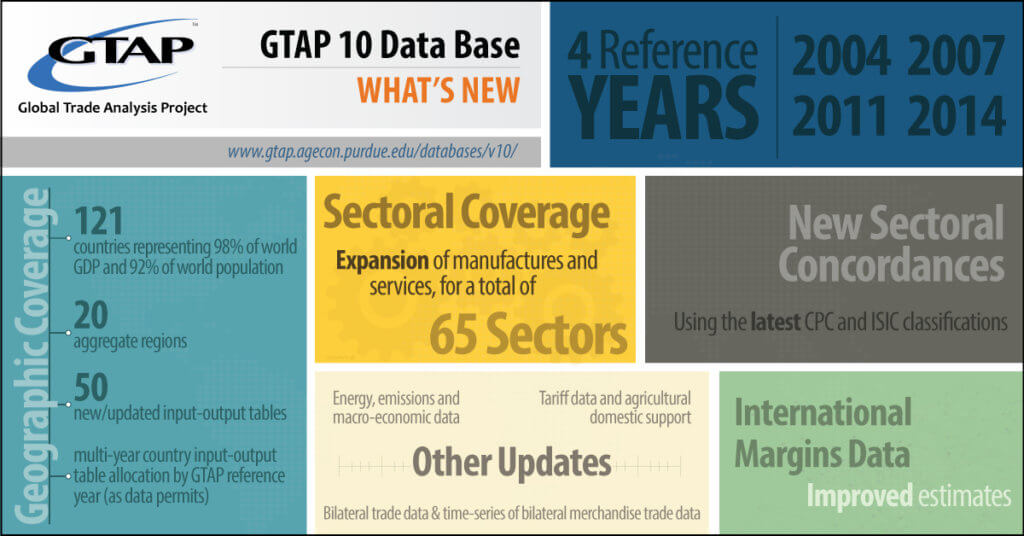“I suspect there isn’t a trade minister on Earth that hasn’t heard of the Global Trade Analysis Project (GTAP). There’s not a trade agreement in the world that is signed without numerical analysis using the GTAP Data Base or a GTAP Model.”
While these claims may sound exaggerated, Dominique van der Mensbrugghe, GTAP’s current director who has witnessed GTAP’s growth over the past 25 years, asserts them with confidence. GTAP activities are coordinated by the Center for Global Trade Analysis, which is housed in Purdue’s Department of Agricultural Economics.
“I spent most of my career in international agencies and was an initial GTAP Board member back in the mid-nineties,” recounted van der Mensbrugghe. “I served on the GTAP Advisory Board when I was with three different agencies: the Organisation for Economic Co-operation and Development in Paris, the World Bank, and then at the Food and Agriculture Organization of the United Nations in Rome.”
“In terms of philosophy, being at Purdue provides the advantages of continuity and sustainability,” explained van der Mensbrugghe. “It’s a kind of sustainability that’s hard to maintain in an agency such as the World Bank, where priorities can change. At Purdue, we’re on a sustainable footing, both in terms of financial resources and in support from the university’s administration.”
“The GTAP Data Base has 121 countries, representing 98% of the world GDP, and tells us for every sector in the economy, what each nation is buying and from whom. There are two core pieces to the GTAP Data Base,” said van der Mensbrugghe. “First, we need national data on economic activity, which are given by the input-output tables. The second component we use is a very detailed database put together by the United Nations on bilateral trade flows and the tariffs that are put on those bilateral trades.”
Nine iterations of the GTAP Data Base have been released since 1992. The GTAP 10 Data Base will be released in July, as announced at the 22nd Annual Conference on Global Economic Analysis in June.
“In our GTAP 10 Data Base, global economic activities are split into a number of categories,” noted van der Mensbrugghe. “We’ve now moved from 57 to 65 sectors to address new issues. For example, the manufacturing of pharmaceuticals and electronics are now separately identified from their prior aggregated economic sectors. We also consider more detailed service sectors and continue to provide the most detail in food and agricultural products when compared to other global databases. We’ve been at work on this new version ever since the GTAP 9 Data Base was released in 2015.”

The GTAP 10 Data Base is arriving at an ideal time for economists. While the economic analysis was fairly predictable when the GTAP 9 Data Base launched, van der Mensbrugghe cited topics such as climate change, migration, Brexit, and trade wars to demonstrate how new concerns factor into current economic analyses.
“Lately, international policymaking has become a lot more volatile. I don’t think the instability is going to go away any time soon. The world needs the kind of analytical policy work that GTAP enables people to do more than ever.”
Photos by J. Deluga-Góra





